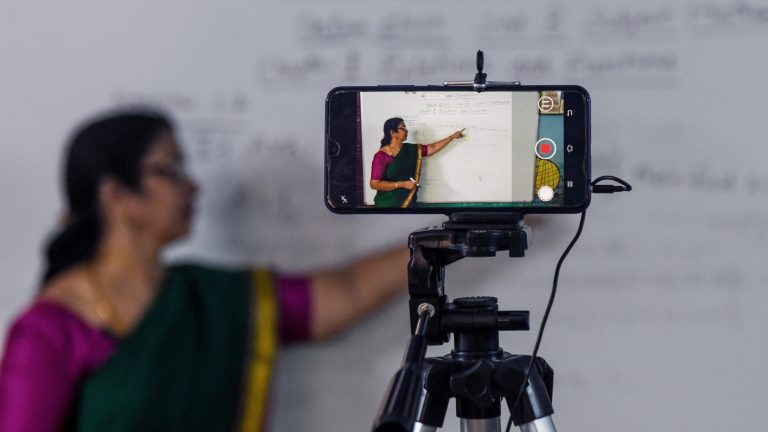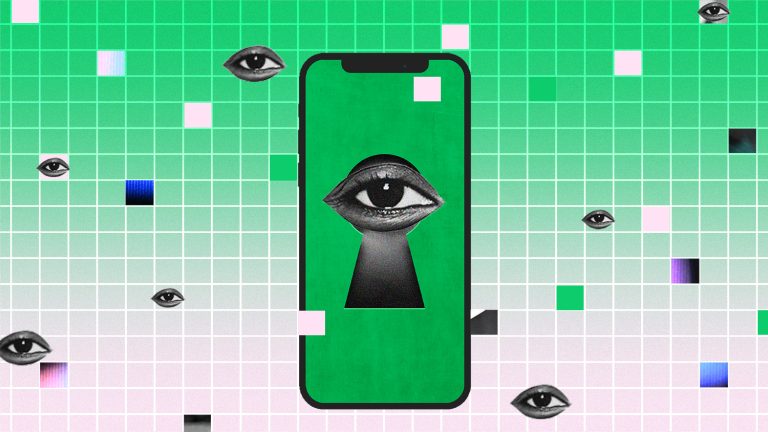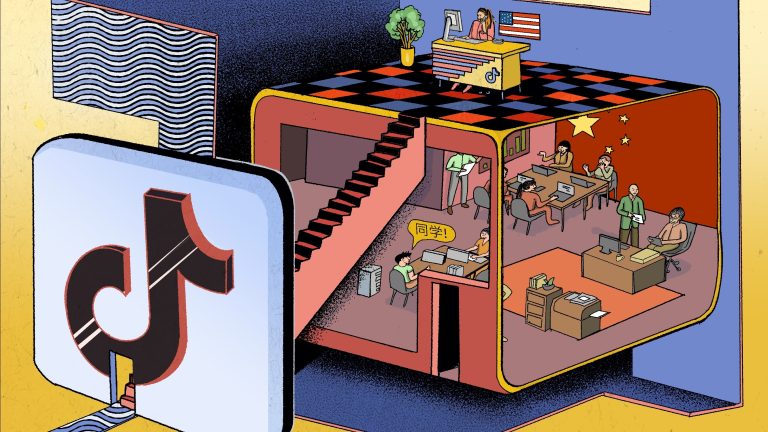“Indian guys on YouTube are responsible for the success of most engineering students in universities,” wrote a Twitter user in Nigeria, in response to a thread discussing unpopular academic opinions. The sentiment, it appears, is not really unpopular. The tweet received over 38,000 likes and close to 9,000 retweets, with a host of Nigerian students expressing their gratitude towards Indian YouTubers.

Indian educators who offer online tutorials for engineering students on YouTube have gained massive popularity in Nigeria, where students rely on them for supplementary academic help. In many cases, Nigerian students told Rest of World, Indian YouTube educators were a better resource than their classrooms.
“During my days as an engineering undergraduate, what was taught to us in classes did not do enough to help students have a deeper understanding of our courses. Indian YouTubers helped bridge that gap and made a difference,” electronics engineer Fasominu Oluwafemi, who studied at the Bells University of Technology in Ogun, told Rest of World. “Even as accent barriers were a factor, they still helped me understand a lot of complex courses … [Indian YouTubers] were a lot better than the classroom lecturers in university.”
Among the most popular Indian education channels in Nigeria are NPTEL IIT Guwahati, Abdul Bari, Manocha Academy, and All About Electronics.
Oro Okoloko, a Nigerian data analyst and former chemical engineering student, told Rest of World she heavily relied on the NPTEL IIT Guwahati channel during her final year at the Federal University of Petroleum Resources. “Personally, Indian YouTubers [were] my first point of contact when I did not understand a particular concept,” she said.
A representative of the NPTEL IIT Guwahati channel told Rest of World that they know significant numbers of Nigerian students use their materials. “We receive numerous replies from them in the comment section expressing their appreciation for the content we provide,” they said. “It is heartening to know that our videos have become a valuable resource for Africans — especially Nigerian students — supporting their educational journey and helping them achieve their goals.”
Abdul Bari, an Indian YouTuber who uploads tutorials on computer engineering, is well aware of his channel’s reach, particularly among Nigerian students. He has been trying to ensure his videos remain relevant to students irrespective of their geographical locations. “I have not made efforts to incorporate content that caters specifically to their needs, but I understand that the Nigerian education system may have its unique requirements and exam patterns. I have always created inclusive content that benefits students from different backgrounds and regions,” Bari told Rest of World.
It’s no surprise that Indian engineers are teaching online. The country sees some 1.5 million fresh engineering graduates every year. The top 10 higher education institutions in India, all government-funded, focus on science and technology, according to the Ministry of Education. This is in deep contrast to the Nigerian university system, which faces the issue of insufficient funding. In May 2023, the financial crunch prompted the National Universities Commission (NUC) to make an urgent demand for increased funding and investments from the government. The Nigerian education system also grapples with challenges related to poor infrastructure and a shortage of academic staff.
These inefficiencies are more prevalent in engineering studies. In January 2023, Oyebanji Oyelaran-Oyeyinka, senior special adviser to the president at the African Development Bank, bemoaned Nigeria’s “weak engineering system,” saying there was a “lack of specialized infrastructure” for research and product development. “There are also too few engineers, scientists, and other researchers,” he said.
The Indian YouTubers’ style of teaching and their ability to simplify complex concepts have been crucial to their popularity in Nigeria. One college student, who requested anonymity for privacy reasons, told Rest of World they struggled with a genetic engineering course and didn’t find their instructor helpful at all. “The school provided internet so it was easy to spend the time needed online,” they said. “[An Indian YouTube channel] opened my head and loaded it with all I need to know about genetic engineering. I aced the course!”
“YouTube is free and I get solutions to my problems in minutes or in a few hours.”
NPTEL IIT Guwahati’s online tutorials follow an “interactive and practical” method of teaching, said the channel’s representative, with an emphasis on “critical thinking, problem-solving, and creativity.” Bari’s lessons, meanwhile, focus on prepping for the engineering entrance exams. “I believe it’s crucial to equip students with the necessary knowledge and skills to excel in these exams as they are often the gateway to prestigious engineering institutions,” he said.
The availability of online resources such as YouTube lessons has made her learning process much faster, said Okoloko. “I am a visual learner and I do not like reading lengthy materials, so watching videos online is my first choice. YouTube is free and I get solutions to my problems in minutes or in a few hours,” she said.
Okoloko isn’t alone in turning to online learning. According to independent market research platform Imarc Group, e-learning became a $2.8 billion market in Africa last year, and is projected to reach $5.2 billion by 2028. According to a research report from software company TechSmith, YouTube is “the most popular place” to watch instructional videos — 52% of the respondents watched more than two educational videos per week in 2021.
Engineering students in Nigeria, though, find the Indian YouTube tutorials to be distinct from other educational resources online. “They have extensive knowledge on fundamental topics and they easily break them down in layman’s terms with relatable examples,” Okoloko said. She has continued to rely on Indian YouTubers to aid her career in data analysis. “[They make] it easy for me to apply what I have learnt.”



